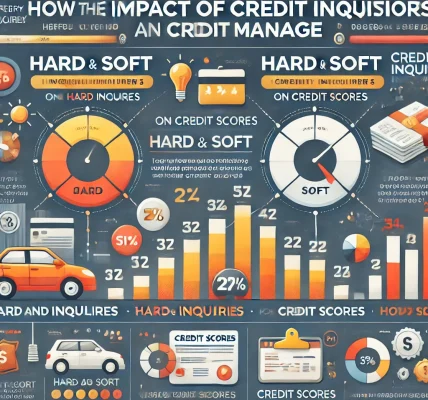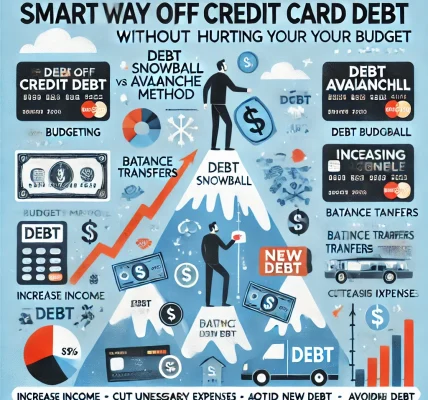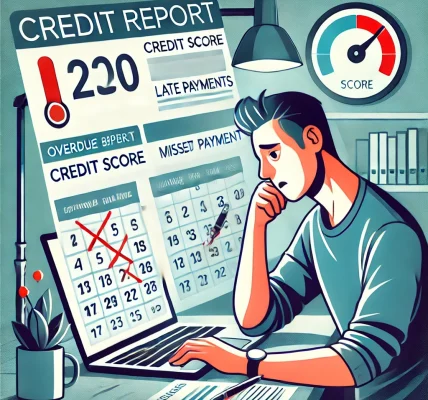Debt management is a crucial aspect of personal finance, and choosing the right tool for managing debt can make a significant difference. When faced with financial obligations, individuals often consider personal loans or credit cards to either pay off existing debt or cover new expenses. But which one is the better option for managing debt? This guide will help you understand the key differences between personal loans and credit cards, their pros and cons, and which one is best suited for your financial situation.
Understanding Personal Loans and Credit Cards
What Is a Personal Loan?
A personal loan is a lump sum of money borrowed from a bank, credit union, or online lender that must be repaid in fixed monthly installments over a set period, usually ranging from 12 to 84 months. These loans can be secured (requiring collateral) or unsecured (no collateral required), with interest rates determined by the borrower’s creditworthiness.
Key Features of Personal Loans:
- Fixed interest rates and monthly payments.
- Loan terms range from 1 to 7 years.
- Can be used for debt consolidation, medical expenses, home improvements, or large purchases.
- Typically lower interest rates than credit cards.
- Requires a formal loan application and approval process.
What Is a Credit Card?
A credit card is a revolving line of credit that allows users to borrow money up to a specified limit. The borrower can use and repay funds as needed, with interest applied to any unpaid balance after the billing cycle ends. Minimum payments are required each month, but full repayment helps avoid interest charges.
Key Features of Credit Cards:
- Flexible borrowing and repayment options.
- Variable interest rates, often higher than personal loans.
- Ideal for small, recurring, or emergency expenses.
- Some cards offer rewards, cashback, and other perks.
- Requires at least a minimum payment each billing cycle.
Pros and Cons of Personal Loans vs. Credit Cards
| Feature | Personal Loan | Credit Card |
|---|---|---|
| Interest Rate | Lower (5-36%) | Higher (15-30%) |
| Repayment Term | Fixed (1-7 years) | Revolving |
| Borrowing Limit | Higher (Up to $100,000) | Lower (Typically $500 – $50,000) |
| Best For | Debt consolidation, large expenses | Small, recurring, or emergency expenses |
| Flexibility | One-time lump sum | Ongoing borrowing |
| Credit Impact | Improves credit mix and payment history | High utilization can lower score |
| Fees | Origination, prepayment fees | Annual fees, late fees, cash advance fees |
When to Choose a Personal Loan
A personal loan is a great choice if you: ✅ Need to consolidate high-interest debt into a single, lower-interest payment. ✅ Have a large expense such as medical bills, home renovation, or wedding costs. ✅ Want predictable monthly payments with a fixed repayment term. ✅ Have a good credit score and can qualify for a low-interest rate.
When to Choose a Credit Card
A credit card is a better option if you: ✅ Have small or recurring expenses that you can pay off in full each month. ✅ Want the flexibility to borrow as needed without applying for a new loan. ✅ Can take advantage of rewards, cashback, or travel benefits. ✅ Have an emergency expense and need immediate access to funds.
How Each Option Affects Your Credit Score
Both personal loans and credit cards can impact your credit score in different ways:
- Personal Loans: Can improve your credit mix and establish a good payment history but may cause a temporary dip in your score due to a hard inquiry.
- Credit Cards: Keeping a low credit utilization ratio (below 30%) is key to maintaining a strong credit score. However, maxing out credit cards can significantly hurt your score.
Debt Consolidation: Personal Loan vs. Balance Transfer Credit Card
If your goal is debt consolidation, you may also consider a balance transfer credit card, which allows you to transfer high-interest debt onto a new card with a 0% introductory APR for a set period (usually 12-21 months). However, if you need more time to repay or don’t qualify for a balance transfer, a personal loan with a fixed term might be a better option.
Final Verdict: Which One Is Right for You?
- Choose a personal loan if you need a structured repayment plan, lower interest rates, and a fixed end date for paying off debt.
- Choose a credit card if you prefer flexibility, can pay off your balance in full each month, and want to earn rewards and perks.
Final Thoughts
Both personal loans and credit cards have their benefits and drawbacks, and the right choice depends on your financial needs, repayment ability, and discipline. Before deciding, evaluate your current financial situation, consider the interest rates, fees, repayment terms, and how each option will impact your credit score.




